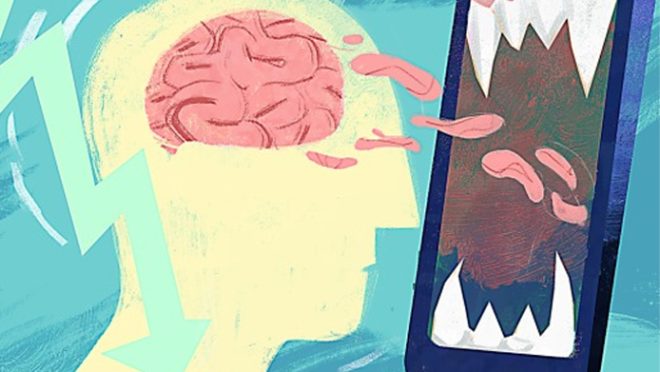How excessive screen time is quietly draining your brain
How excessive screen time is quietly draining your brain

Have you ever caught yourself scrolling on your phone, thinking, ‘Just one more video,’ only to realise hours have flown by? It happens so easily these days. Apps are designed to pull us in and keep us hooked.
That foggy, burnt-out feeling from excessive screen time actually has a name: brain rot. Initially, I assumed it was just another internet buzzword, but it turns out to be more than that. In 2024, Oxford University Press even named it the ‘Oxford Word of the Year.’
Brain rot is the mental exhaustion from consuming too much mindless content. It makes focusing hard and traps your brain in a cycle of distractions. If you have ever said, “No thoughts, just vibes,” you have probably felt it.
The internet has even turned brain rot into a joke. Parody videos of people who seem “infected” show them glued to their screens, speaking entirely in meme references and TikTok trends. It is funny until you realise how much it mirrors real life.
Our brains are being flooded with non-stop, bite-sized content designed to keep us hooked. But the more we consume, the more drained we feel. It is like a mental junk food binge: fun in the moment but leaving you empty and foggy afterwards.
This word perfectly sums up the age we are living in where digital noise has become so deafening that our minds do not know how to switch off.
Dr Naima Nigar, assistant professor at the Department of Psychology, Dhaka University, explains that brain rot is not officially recognised as a disorder. However, there is significant research on internet addiction, nomophobia (fear of being without a mobile phone), and their impacts on brain functioning and mental health.
Research by Microsoft shows that the average human attention span has dropped from 12 seconds in 2000 to just eight seconds today, which is less than that of a goldfish.
Dr Naima agrees, sharing that many studies have found that digital addiction exerts harmful impacts on the structure and functionality of the brain, especially the frontal lobe, which is associated with reasoning and decision-making. This might result in poor decision-making. The age group most likely to be impacted is children and teenagers.
“Excessive screen time has been linked to decreased attention spans and may significantly contribute to the development of ADHD in children. Some countries have already taken action: Australia recently banned social media use for those under 16, and in China, kids face a one-hour daily limit on social media usage.”
Shammi Raihan, a student at Brac University, says the pandemic made things worse. She spent most of her time online, thinking it would help her stay connected, but now she feels constantly distracted. Even while studying or talking to someone, her mind tends to wander, leaving her feeling mentally exhausted.
For others, it is not just about the distractions, but also about losing the ability to enjoy slower, more meaningful moments.
Ayesha Akter, a 35-year-old school teacher, shares, “I used to love reading books, but now, after a few pages, I feel restless. I instinctively reach for my phone, even though I don’t want to. It’s like I’m addicted.”
Dr Naima comments that internet addiction harms social intimacy and emotional intelligence, and these symptoms mirror what many describe as ‘brain rot’.
So, what can we do to overcome this? Dr Naima suggests implementing measures like those in many countries, such as time restrictions on social media for children and teenagers or banning its use in schools and colleges, which might offer benefits.
“Parents, guardians, and children need education on social media hygiene. Schools can organise workshops to highlight these issues, equipping students with strategies to manage their screen time,” she says.
She emphasises that social media companies play a significant role in shaping online discourse and should be held accountable for low-quality content. By moderating content actively, they can help prevent the spread of misinformation, hate speech, and other harmful materials. Their algorithms and design choices directly influence what users see, making them partly responsible for the content people consume.
Sayma Islam, a final-year psychology student, recommends dedicating just 10 minutes a day to being fully present — whether during a meal, a conversation, or a walk.
“I’ve started with that, and even those small moments of focus feel refreshing. It’s not easy, and it’s definitely a work in progress,” she says.
Ayesha explains that while it is not easy to unplug, she has started leaving her phone in another room when spending time with her family and uses app blockers to avoid distractions while she is reading. She says it is a small change but has helped her feel more present.
We all deal with brain rot in different ways, but it is worth fighting. Keeping up with social media is fun, but do we not also deserve a clearer, calmer and more focused mind?


